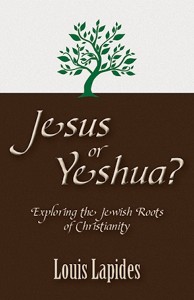Nov 7, 2014
Posted by Scripture Solutions on Nov 7, 2014 | 2 comments
The question of forgiving one another has plagued me ever since I became a follower of Jesus. I heard many pastors and Bible teachers comment on this subject, but I did not feel they were teaching the message of the biblical text. Instead, what I was hearing was helpful common sense advice and psychological healthy ways to look at the way we should forgive one another.
Recently a good friend of mine whom I deeply respect, challenged me on my beliefs regarding the need for repentance as a condition for forgiveness.
Where I agree on this issue with my friend is that we both are in harmony that for a person to be reconciled with God, there must be a display of contriteness or repentance to experience the eternal forgiveness of God. This is designated “vertical forgiveness” because it takes place between man and God.

Forgive One Another
Where my friend and I disagree is whether or not repentance is necessary when we as humans forgive one another. If I offend another person, do I need to go to that person or have that person come to me so that I can confess my sin, state my intention to repent and ask for that person’s forgiveness?
My friend’s viewpoint is that we can forgive the other person through the forgiveness Jesus obtained for us through His death on the cross. The grace of God shown in the sacrificial death of Yeshua on the cross should so overwhelm us, that the natural outflow of our awe towards God’s love is to forgive others because God has shown His merciful forgiveness to us through His Son.
There is not always the need for repentance when there is “vertical forgiveness.” On the basis of the atonement we have in the Messiah, we forgive one another. with or without any display of repentance. In the Sermon on the Mount, in the Lord’s prayer in Matthew 6:12, we read, “And forgive us our debts, as we also have forgiven our debtors (NIV). (more…)
Jun 25, 2014
Posted by Scripture Solutions on Jun 25, 2014 | Comments Off on Did Those Six Million Jews Die for You?

The Entrance to Auschwitz
By now the controversy surrounding the Jews for Jesus video “That Jew Died for You” has simmered down. Still the strong negative reaction by the Jewish community to the JFJ evangelistic effort remains a stain on Jewish-Christian relations.
At the release of the video prior to Holocaust Remembrance Day, a Jews for Jesus press release, explained the video seeks “to help redefine the conversation and reshape views of Jesus and His relationship to the Holocaust.”
The intentions of JFJ in the production of this video were honorable and aimed to initiate conversation among Jewish people regarding Christianity’s relationship to the murder of six million Jews under the evil Nazi regime.
David Brickner, Executive Director of JFJ offered his public commentary on the video, “The horrors of the Holocaust and the 6 million who died has gnawed at the consciousness of Jews for over 60 years. We want Jewish people to understand that the sufferings inflicted at the hands of the Nazi’s were in no way based on the teachings of Jesus (underlining mine). In fact, he suffered and died on our behalf to show us the love of God.”
Oddly, the majority of Jewish people do not think the teachings of Jesus are responsible for the horrors of the Holocaust. Rather, the Jewish community is more concerned with the antisemitic attitudes of Eastern European Christians prior to and during World War II that helped fuel the racist ideology behind the Holocaust. (more…)
Jun 20, 2012
Posted by Scripture Solutions on Jun 20, 2012 | Comments Off on Just Published! Jesus or Yeshua: Exploring the Jewish Roots of Christianity
Today ScriptureSolutions published a new booklet written by Louis Lapides. This brief book can be found for Kindle at Amazon.

Jesus or Yeshua: Exploring the Jewish Roots of Christianity by Louis Lapides
It came to no surprise to me that when I first became a Jewish follower of Yeshua, I was going to have a cultural crisis trying to fit into a Gentile Church. I lasted a few months before I started asking inevitable questions, “I’m Jewish. Jesus is Jewish. His first followers were Jewish. The New Testament was written by Jews and a lot of the concepts they discussed have a powerful Hebraic background. Then why is Christianity so “not-Jewish”?
Jesus or Yeshua: Exploring the Jewish Roots of Christianity provides the reader with some of the findings I came upon as searched for answers to my questions. For me a lot of the issues were resolved when I studied the origin of most of the terminology used by Christians when describing their beliefs and practices. When I was growing up attending Hebrew school in preparation for my Bar Mitzvah I never expected that Rabbi Printz would tell me that the mass practiced by the Catholic Church across the street from our temple was actually based in the Jewish Passover. Nor was I told that baptism has it’s origins in the Jewish practice of immersion or mikveh used when Gentiles would turn from their paganism and convert to Judaism.
Attending a church for me at age 23 was a shocker as I describe in my opening chapter. Here is a sample section from that chapter that will give you an idea of what Jesus or Yeshua: Exploring the Jewish Roots of Christianity is all about.
Here’s a shocker . . . Jewish people don’t feel at ease in a Christian church. The first time I attended a Protestant congregation, a Southern Baptist one, I couldn’t avert my eyes from the 10-foot tall stained glass mosaic of Jesus looming behind the pastor. I imagined for a few moments the man from Galilee was about to step out of the window, float over to my pew and ask whether I noticed the “Jews Not Welcome” sign at the church’s front door. “Of course,” I would respond, “But Jesus, aren’t you . . . .?”
(more…)
Mar 19, 2012
Posted by Scripture Solutions on Mar 19, 2012 | Comments Off on The Burial Box of Jesus’ Brother James – Fact or Fake?
After seven years of trial, testimonies from a lineup of archaeological experts and a 475 page verdict, presiding Judge Aharon Farkash of the Jerusalem District Court court not reach a decision supporting the fact the ossuary [a limestone burial box] of James, brother of Jesus, was a forgery. As a result the Jerusalem judge could not charge Israeli collector Oded Golan, the owner of the bones box of James, with forgery regarding the ossuary.
A Huffpost Religion article summed up the seven year controversy and what the final verdict implies:
Golan said the ruling put an end to what he portrayed as a 10-year smear campaign against him. Hershel Shanks, editor of the Washington-based Biblical Archaeology Review, said he was delighted, insisting the burial box, or ossuary, is authentic and a “prized artifact to the world of Christianity.”
The Israel Antiquities Authority, which believes Golan’s most high-profile items are forged, said the case shows the limits of science in proving forgeries, but it also prompted museums and universities around the world to be more suspicious of finds of uncertain origin.
In light of the ruling students of the Bible are left with the conclusion the ossuary may be authentic after all and that science could not debunk the veracity of the claim that the box once housed the bones of James, the brother of Jesus of Nazareth.

James, the brother of Jesus
Dec 13, 2011
Posted by Scripture Solutions on Dec 13, 2011 | 2 comments
Raise your hand if you like the biblical teaching on the existence of hell. My hand is not raised. No, I am not enamored with what the Bible teaches about hell. I take no joy knowing a person I care about may spend eternity in conscious torment, separated from God. I am not sadistic nor do I enjoy seeing people suffer.

In light of my dislike of this biblical teaching, I have two choices. I can accept what the Scriptures teach about hell or I can revise the doctrine until I feel comfortable with it and share my watered-down version with others to make them less comfortable as well.
Welcome to the wild and wacky world of Rob Bell, author of Love Wins. Bell, a competent writer, who has a way with words which he employs to weave a tapestry that makes his hearers feel warm and fuzzy about difficult biblical concepts, but his quilt is filled with broken threads and mismatched patterns.
In chapter 7 called, “The Good News Is Better Than That,” the pastor grapples with the questions, “Why would a compassionate God send good people to hell? Is He really a good God? Isn’t it unfair for a person to spend a brief life span of 70-80 years committing sins and then receiving an eternal punishment that lasts forever?
Bell asks good questions. I don’t like his answers.
Throughout his chapter “The Good News Is Better Than That,” Rob Bell leans strongly towards the view the hell the Bible warns us against is experienced during this life not the the afterlife. The conclusion about hell drawn by the writer of Love Wins, is that hell is our experience of life on earth. (more…)











